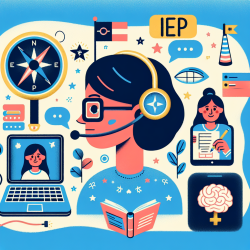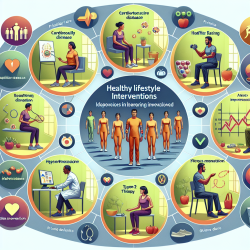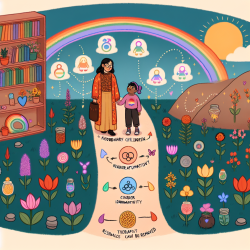Introduction
In the realm of educational interventions, sustainability is a critical factor that determines whether an evidence-based program can continue to benefit students over time. The study titled "Predictors of the sustainability for an evidence-based eating disorder prevention program delivered by college peer educators" sheds light on the factors that contribute to the longevity of such programs. This blog explores the key findings of this research and offers insights for practitioners aiming to enhance their skills and ensure the sustainability of their interventions.
Understanding Sustainability in Educational Interventions
Sustainability refers to the extent to which a newly implemented treatment is maintained or institutionalized within a service setting's ongoing operations. For educational interventions, especially those targeting mental health issues like eating disorders, sustainability ensures that the benefits of the program continue to reach students long after the initial implementation phase.
Key Findings from the Research
The study investigated the sustainability of the Body Project, an evidence-based eating disorder prevention program delivered by peer educators on college campuses. The research identified several predictors of sustainability:
- Implementation Activities: The completion of a greater number of implementation activities during the initial phase was a strong predictor of sustainability. Schools that engaged more thoroughly in these activities were more likely to continue offering the program.
- Perceived Characteristics of the Intervention: Positive perceptions of the intervention's characteristics by peer educators significantly influenced the training of new educators, which is crucial for sustainability.
- Implementation Support Strategies: While not statistically significant, there was a trend suggesting that comprehensive support strategies, including quality assurance consultations, were associated with better training of new supervisors.
Practical Implications for Practitioners
For practitioners looking to enhance the sustainability of their programs, the study offers valuable insights:
- Engage in Thorough Implementation Activities: Completing a comprehensive set of implementation activities can significantly enhance the likelihood of a program's sustainability. Practitioners should ensure that all necessary steps are followed during the initial phase.
- Foster Positive Perceptions: Encouraging a positive view of the intervention among peer educators can lead to better sustainability outcomes. This can be achieved through effective training and communication about the program's benefits and compatibility with the educational setting.
- Consider Comprehensive Support Strategies: While not conclusive, the study suggests that additional support strategies, such as quality assurance consultations, may enhance sustainability. Practitioners should consider incorporating such strategies into their implementation plans.
Encouraging Further Research
While the study provides valuable insights, it also highlights the need for further research into the sustainability of educational interventions. Practitioners are encouraged to explore additional factors that may influence sustainability, such as organizational support, funding, and external partnerships.
To read the original research paper, please follow this link: Predictors of the sustainability for an evidence-based eating disorder prevention program delivered by college peer educators.










